- Home
- Jason Pinter
Hide Away (A Rachel Marin Thriller)
Hide Away (A Rachel Marin Thriller) Read online
OTHER BOOKS BY JASON PINTER
HENRY PARKER SERIES
The Mark
The Guilty
The Stolen
The Fury
The Darkness
The Castle
FOR CHILDREN
Zeke Bartholomew: SuperSpy!
Miracle
This is a work of fiction. Names, characters, organizations, places, events, and incidents are either products of the author’s imagination or are used fictitiously. Any resemblance to actual persons, living or dead, or actual events is purely coincidental.
Text copyright © 2020 by Jason Pinter
All rights reserved.
No part of this book may be reproduced, or stored in a retrieval system, or transmitted in any form or by any means, electronic, mechanical, photocopying, recording, or otherwise, without express written permission of the publisher.
Published by Thomas & Mercer, Seattle
www.apub.com
Amazon, the Amazon logo, and Thomas & Mercer are trademarks of Amazon.com, Inc., or its affiliates.
ISBN-13: 9781542005906
ISBN-10: 1542005906
Cover design by Rex Bonomelli
To Dana, Ava, and Lyla
My girls, my world, my everything
CONTENTS
START READING
CHAPTER 1
CHAPTER 2
CHAPTER 3
CHAPTER 4
CHAPTER 5
CHAPTER 6
CHAPTER 7
CHAPTER 8
CHAPTER 9
CHAPTER 10
CHAPTER 11
CHAPTER 12
CHAPTER 13
CHAPTER 14
CHAPTER 15
CHAPTER 16
CHAPTER 17
CHAPTER 18
CHAPTER 19
CHAPTER 20
CHAPTER 21
CHAPTER 22
CHAPTER 23
CHAPTER 24
CHAPTER 25
CHAPTER 26
CHAPTER 27
CHAPTER 28
CHAPTER 29
CHAPTER 30
CHAPTER 31
CHAPTER 32
CHAPTER 33
CHAPTER 34
CHAPTER 35
CHAPTER 36
CHAPTER 37
CHAPTER 38
CHAPTER 39
CHAPTER 40
CHAPTER 41
CHAPTER 42
ACKNOWLEDGMENTS
ABOUT THE AUTHOR
Everyone has three lives: a public life,
a private life, and a secret life.
—Gabriel Garcia Marquez
CHAPTER 1
The night her family was ripped apart, the woman stood by her oven, watching the chicken cook through the glass, thinking to herself there was nothing on earth more terrible than a burnt casserole.
She stole a quick glance at the baby monitor sitting atop the counter. She could see her six-month-old daughter’s chest rising and falling ever so slightly, the child’s peaceful slumber a salve for a mother’s anxiety. Her son, now six, had always managed to escape from his swaddle—her little Houdini, she’d called him—but since birth her daughter had melted into the soft cloth, tucked in and content. Our little burrito, Brad had said on the day they brought her home.
Her son had gone to play at Zachary Bloomfield’s house around the corner on Fox Hill Lane after school. He’d sworn to be home by 6:30 p.m. for dinner. Given that the Bloomfield residence was just two blocks away, she allowed him to return on his own. It was now 6:38. She considered calling Zachary’s mother, Mallory, for a status update, but she had promised Brad that she wouldn’t worry until there was something worth worrying about.
Their son had a whirling dervish of a social life: every afternoon brought a playdate or a birthday party or peewee soccer practice. Keeping up with him while simultaneously maintaining a relatively clean household and taking care of an infant left her drained, but she was pleased he was so active, so sociable. Half his classmates whittled away beautiful days lost in the glare of an iPad. Deep down, she was glad he was late. Of course, she couldn’t let him know that.
Besides, the casserole needed another ten minutes to bake. The salad was already prepared and waiting to be tossed with her delicious homemade italian dressing. A side of israeli couscous sat in a warm pot. Brad worked eighty-hour weeks, but he’d sworn to eat at least one dinner a week at home with their family. And tonight was family night.
Most evenings she ate alone with her son, glancing forlornly at Brad’s empty chair, the baby in a bouncer on the floor next to her. Her son talked her ear off: chew and talk. Chew and talk. There was no detail too small or too insignificant to share. He regaled her with tales of bad cafeteria food, which friends he chose to sit with and why, and whose birthday party had the best (and worst) cake. And she sat there and listened, riveted, a blissful smile on her face.
And as soon as his plate was clean, her son shot from the table like a lit firework. She never stopped him but always silently hoped he might stay just a little longer. She cherished the company. With a loving husband who worked long hours to provide and two wonderful, healthy children, she felt guilty even thinking it . . . but was she lonely?
Most nights Brad got home exhausted, tossed his clothes into a pile on the bedroom floor, and collapsed into bed. A three-minute How was your day and a chaste peck on the lips, and suddenly it was the next morning. They hadn’t been intimate since their daughter was born. She had been anxiously waiting for him to make the first move, longed for him to slip a gentle hand underneath her tank top. She missed his touch, feeling his weight on her, the roughness of his stubble on her face. She knew Brad was pushing himself all day, every day, for them. They had struggled to make ends meet for as long as they’d been together. Brad brought home $80,000 a year, barely enough to pay their mortgage while providing for a family of four. Their three-bedroom, two-bathroom house was meant to be a starter home, but with finances stretched to their limits, they wouldn’t be moving anytime soon.
Brad worked hard and needed rest. But she still found herself yearning. And not just for physical intimacy. Not that long ago she’d graduated as class valedictorian, captained the field hockey and swim teams, and plowed through college with a 3.9 GPA. She vacillated between med school and law school, knowing she could excel at either. Her mind was sharp, work ethic unparalleled. The world was hers if she wanted it. And she did.
When she got pregnant with her son soon after graduation, it was a surprise but not an unwelcome one. Her ambitions were put on the back burner, where she assumed they would stay warm. But seven years later, her career aspirations had grown as cold as their marital bed. Suddenly she was a stay-at-home mom at thirty. She felt too old to go back to school, but the thought of draining her remaining youth waiting on casseroles made her want to jump off a bridge.
She still had boxes upon boxes of reference books in a storage unit, buried underneath old high school yearbooks and jeans that would never fit again. Medicine. Law. History. On nights like tonight, when she was standing alone in front of the stove, they called out to her. The books were her whetstones, her mind a blade grown dull. Her son was in school, and her daughter would soon be old enough for day care. Perhaps it was time to revive her senses.
In the interim, she needed to rekindle the fire with Brad. Her son had a birthday party down the block on Saturday, and it would take a nuclear explosion to wake her daughter from her afternoon nap. She would drag her man into bed, kicking and screaming if need be. She would end their dry spell—with prejudice.
But in the meantime, the casserole was ready.
She took the dish fr
om the oven, removed the foil, and let the meal stand. She plucked a blonde hair from the bubbling cheese and chastised herself for not paying closer attention. She checked her watch. 6:51. No sign of her husband or son. Now she was growing irritated. And slightly worried.
The table was set. Dinner ready to serve. She called Brad’s cell. It went straight to voice mail. That was odd—Brad never turned his phone off.
She did a loop around the dining room table, straightening out the silverware, smoothing out the napkins. Just when she began to dial the Bloomfield’s phone number, she heard the front door open.
“Mom?” her son shouted from outside. “Can you come here?” There was concern in his voice. And something else . . . a tremor of fear beneath it that sent a shiver up her spine.
“Hon? Everything OK?” she shouted back, chalking her fear up to ordinary mother anxieties. He was fine. Everything was fine. “I’m in the kitchen. Go wash up for dinner. Your father should be home soon.”
“Somebody left something on the porch,” he said, his voice shaky. “Something in a bag. Mom, come here.”
Something in a bag? She hadn’t ordered anything online recently—certainly nothing that might be delivered in a bag. “Is it the dry cleaning?”
“No, it’s not that kind of bag. There’s . . . there’s something wet on it,” he shouted. “It’s red.”
Red?
“Hold on, sweetie. I’m coming.”
Her heart began to thrum in her chest as she went to find her son. The front door was open. She found him kneeling on the front step, untying a large brown burlap sack.
“Honey, stop,” she said. “You don’t know what . . .”
Then she saw what he saw—a spot of red. Not a spot, more like a stain. But the stain appeared to have soaked through the sack from the inside.
“Baby, don’t . . .”
But he had already finished untying it. She watched as he pulled apart the strings and opened the sack.
The look on her son’s face when he saw what was inside would be forever burned into her memory.
His eyes grew wide, wider than she thought possible, his lips trembling, his mouth spread into a horrible O. At first there was no sound. But then a scream welled up from deep within him, a horrifying, anguished howl that rattled her bones.
He fell backward onto the porch, still screaming. She gathered her son in her arms and held him tight, pressing his face into her chest, his screams muffled by her thick cardigan. His whole body shook; his mouth opened so wide she felt his teeth sinking into the flesh of her arm. She tried to pull him away, worried he might choke. He hooked his fingers into her back and continued to wail as she ran her fingers through his hair. Then she looked down into the open sack.
And she began to scream too.
CHAPTER 2
Seven Years Later
Rachel Marin’s heels clacked on the dark, iced-over cobblestone street as she hurried home, shielding herself against the bitter December wind. Her afternoon sitter, Iris, had already threatened to quit twice if Rachel didn’t start getting home on time. She was expected home by 7:00 p.m. It was already 7:42.
The thread securing the top two buttons on her coat had frayed, the cold wind slipping inside her jacket, chilling her to the core. It was hardly beyond Rachel’s skill set to sew a loose button, but unearthing ten spare minutes between her children and her job was like squeezing chocolate milk from a brick.
With a brutal winter having descended upon the city of Ashby, Illinois, vacant cabs were nonexistent, the public transportation system was overloaded, and the nearest UberX was twenty minutes away. The lack of transportation options reminded Rachel why many people referred to Ashby as “Budget Chicago.” Ashby was the kind of city you moved to when you were priced out of metropolitan areas, content to live with an abundance of strip malls and a lack of cultural options: one (run-down) cinema, a local theater company, and more burger joints per capita than anywhere else she’d been. But culture was not why they had moved to Ashby. Nor were they strapped financially. This unassuming small town had allowed Rachel and her children to restart their lives. And a fresh, clean start was all that mattered.
So Rachel found herself barreling down a snow-dusted sidewalk under a darkening sky, her purse swinging wildly as she slalomed between pedestrians, trying to avoid catching her heel in a pavement crack and taking down a slew of poor souls like puffy-coated bowling pins. And with just five blocks to go, Rachel was in the home stretch. She’d beg forgiveness from Iris and maybe, just maybe, get home in time to read her daughter a bedtime story.
She didn’t see the man step out in front of her until it was too late.
He was big and solid with a bald freckled head and red cheeks, and Rachel caromed off him like a tennis ball from a cement wall. She fell backward and landed sharply on her tailbone, a lightning bolt of pain shooting through her pelvis. She could feel slush seeping into her pants.
The man, all 250 pounds of him, reached down, pulled her up by the elbow, and whipped her into an alley. Rachel landed hard on her hands and knees and reached for her purse. The man grabbed Rachel’s wrist and held it briefly, as if to say Don’t do that, then threw her up against the brick wall. Her back, hands, and knees were covered in sludge and snow. The man pressed his body firmly against hers and placed his forearm into her neck. His breath smelled of onions and beer.
“I could crush your windpipe like a packet of ketchup,” the man whispered into her ear, his stubble searing her cheek. “You make a sound, and I’ll squeeze until it pops.”
He allowed just enough slack to permit her to breathe but maintained enough pressure on her throat to let her know it wouldn’t necessarily stay that way. With his free hand he slipped her pocketbook from her shoulder, pressed the brass clasp to unlock it, and took out her wallet. He then turned the purse upside down and shook it until all Rachel’s belongings fell onto the grimy street.
Out went her lipstick, tampons, mirror, hairbrush, a KIND bar, a pack of sugar-free gum, and her makeup kit. He dropped her purse into the muck, then unzipped the wallet. He smiled when he saw a thick wad of twenties nestled inside.
“That’s to pay my sitter,” Rachel said.
“Was to pay her,” the man said, stuffing the bills in the pocket of his dark-green bomber jacket.
“Please, don’t do this.”
“Consider yourself lucky if I only take the money,” he said, pressing his arm against her throat just a little harder. Rachel struggled beneath his bulk.
“Please,” she said, croaking out the word. “I just want to get home to my children. Just walk away now, and we can forget this ever happened.”
He stared at her. She saw the slightest twitch in his eyes, like he was considering her plea. Then he glanced down the alleyway. It was empty. And it was dark. She felt something rub up against her leg and instantly knew what was about to happen.
“It’d be a shame to end the night early,” he said, dragging her farther into the alley. “Scream, and I’ll open you up where you don’t already have any holes.”
She dug her feet into the ground and said, “Sir, I’m begging you, don’t do this. You’ll regret it.”
“I’ll regret it?” he said with a hearty laugh. “Beg all you want; it’ll be more fun if you do.”
“Please. Don’t make me do this.”
The man stopped. Looked back at her, amused. He still held her by the wrist.
“Make you do what?”
Rachel sighed. Before the man had a chance to take another breath, she brought her wrist up so that her palm was facing her nose, forcing the man to straighten his arm, forearm up, to keep his grip. She then snapped her free hand upward against his elbow, hyperextending the joint and tearing the radial and ulnar collateral ligaments. He howled in pain and grabbed his injured limb. She was free.
Then Rachel turned the flat of her hand into a knife’s edge and jabbed her fingers into his throat. The man made a choking sound, his eyes went wide, and h
e fell to his knees, gasping for air. Tears streamed down his cheeks. When he staggered back to his feet, Rachel used his forward momentum to slam his head against the brick wall. He crumpled to the ground. Rachel then pressed the point of her heel into the small, soft crook in his ankle where the tibia bone met the talus bone.
“If I press down any harder,” Rachel said, “I’ll split your ankle in two. You scream, and I’ll pop it like a ketchup packet.”
“What do you want?” the man spat between moans.
“What do I want? Hmm. Let me see . . . what do I want . . . ,” Rachel said sarcastically. “Well, I wanted to get home in time to read my daughter a story before bed, but you ruined that, so thanks.”
Rachel knelt down, keeping pressure on the man’s ankle, and slid her hand into his jacket pocket. She took her money back. In one pocket she found his wallet. In the other, she found a small folding knife. She flicked the blade open.
She examined the steel. It was old, dull. A careless weapon for a careless man.
She pressed the knife tip into the small of the man’s back, just above his pelvis. He went rigid.
“Please,” he said softly.
“This part of your spine is what’s known as the cauda equina,” Rachel said. “It’s a group of nerve endings that controls everything from motor and organ function to your lower limbs. Point being: I could make you a paraplegic in the time it takes you to sneeze.” She pressed the knifepoint in, harder. Mucus and blood and tears pooled together and dripped down his face into the slush.
Methodically, Rachel reached down and deposited each of the scattered items back into her purse. She opened the Camera app on her cell phone and snapped several pictures of the brass clasp. Then she opened his wallet and slipped out his driver’s license.
“Reginald Bartek,” she said, “of 115 Sycamore Lane, in North Ashby.”
Rachel scanned Bartek’s license, confused.
“Wow, you live in a real nice neighborhood, Reggie. A two bed, two bath will easily run you a million four in that part of town.” She sniffed the air. “And that Tom Ford cologne you’re wearing runs a hundred bucks a bottle. You need my money like I need a submarine.”

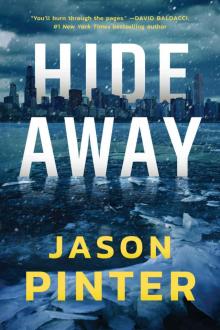 Hide Away (A Rachel Marin Thriller)
Hide Away (A Rachel Marin Thriller)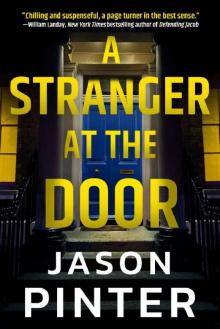 A Stranger at the Door (A Rachel Marin Thriller)
A Stranger at the Door (A Rachel Marin Thriller)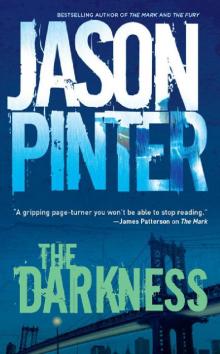 The Darkness hp-5
The Darkness hp-5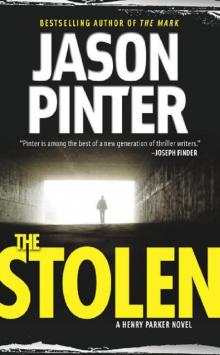 The Stolen hp-3
The Stolen hp-3 The Guilty hp-2
The Guilty hp-2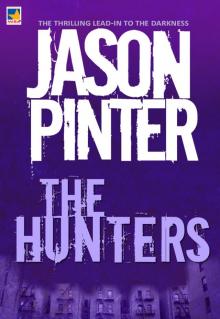 The Hunters
The Hunters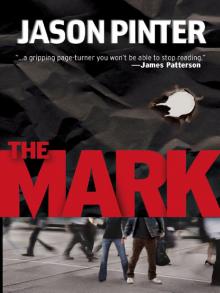 The Mark hp-1
The Mark hp-1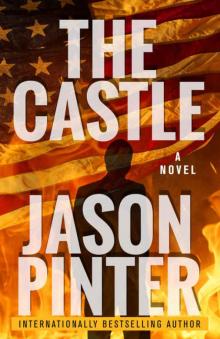 The Castle: A Ripped-From-The-Headlines Thriller
The Castle: A Ripped-From-The-Headlines Thriller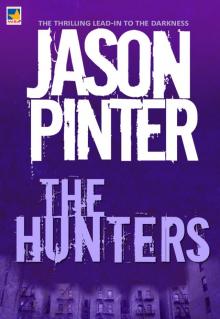 The Hunters (henry parker)
The Hunters (henry parker)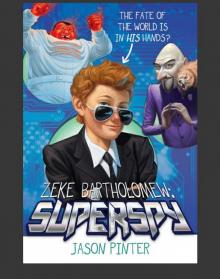 Zeke Bartholomew
Zeke Bartholomew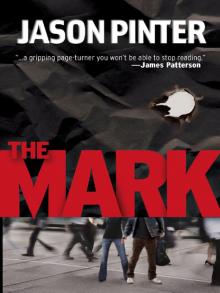 The Mark
The Mark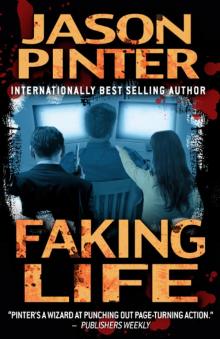 Faking Life
Faking Life![[Henry Parker 01.0] The Mark Read online](http://i1.bookreadfree.com/i2/04/08/henry_parker_01_0_the_mark_preview.jpg) [Henry Parker 01.0] The Mark
[Henry Parker 01.0] The Mark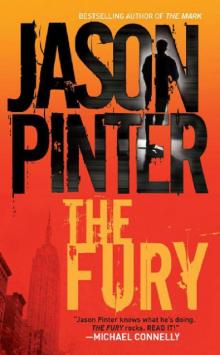 The Fury hp-4
The Fury hp-4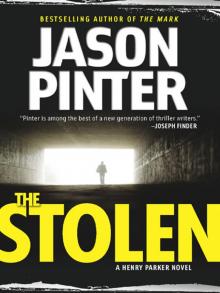 The Stolen
The Stolen The Guilty
The Guilty